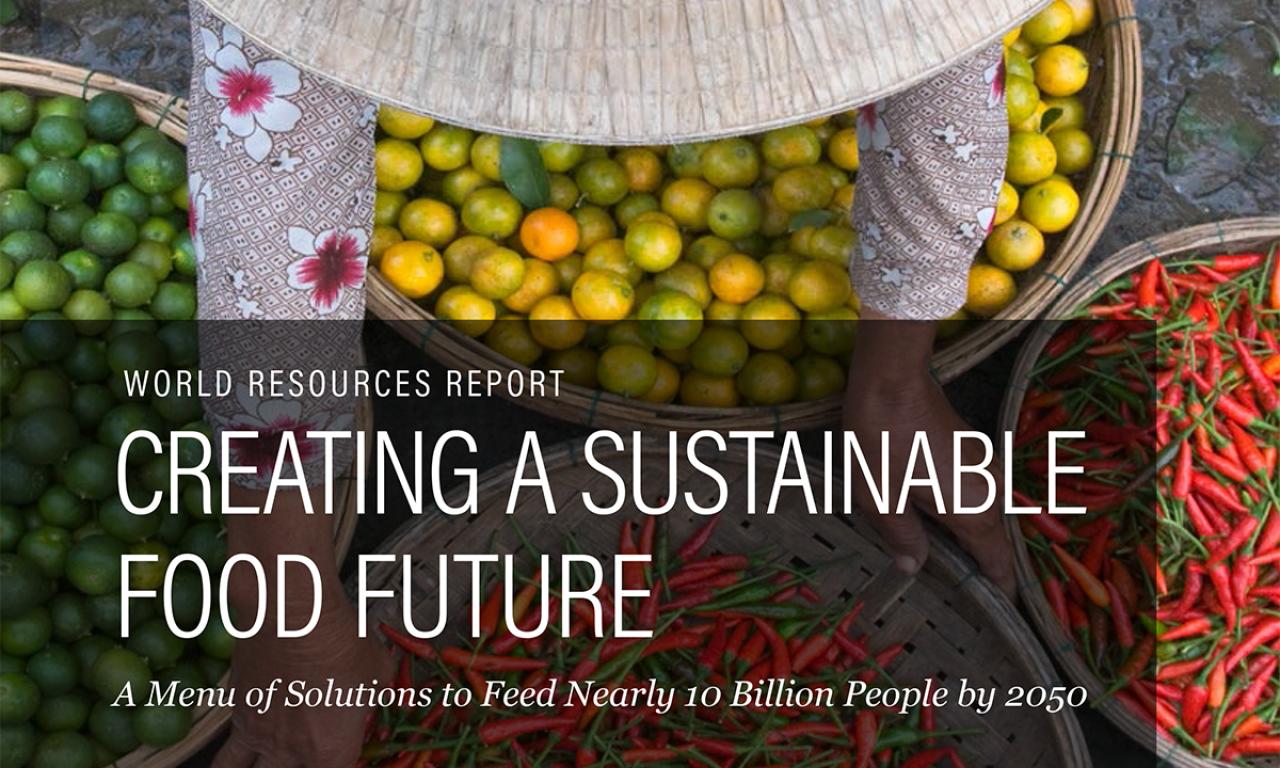
A new report from the World Resources Institute highlights the key role of fish – from wild fisheries and sustainable aquaculture - in achieving sustainable food systems by 2050.
Creating a Sustainable Food Future proposes various options for producing enough food for 10 billion people by mid-century, bearing in mind limited land and the need to cut greenhouse gas emissions from food production. The report explores a 22-item “menu” for a sustainable food future, divided into five “courses”, one of which is simply titled, Increase Fish Supply.
WorldFish contributed research to this key report. This research finds that fish consumption is projected to rise by around 58% from 2010 – 2050, but that both wild fisheries and fish farming will need to respond to a series of challenges if fish supply is to be increased in a sustainable manner.
In wild fisheries, reducing overfishing and introducing measures to allow depleted fish stocks to recover are described as important first steps, along with habitat protection. Aquaculture, meanwhile, needs to increase productivity while responding to challenges including disease outbreaks in farmed fish, the sector’s potential for continued impact on mangrove forests, and its greenhouse gas emissions – fish farming accounts for approximately 5% of agricultural GHG emissions. The course recommends strategies for improvements in both wild and culture fisheries as part of a future sustainable food system.
“Solving some of the challenges for sustainable fish supply in our food system could bring huge dividends, for both people and planet,” said Dr Michael Phillips, Director of Aquaculture and Fisheries Science at WorldFish and the CGIAR Research Program on Fish Agri-Food Systems (FISH). “For too long fish and other aquatic foods – whether wild or farmed – have not been a priority for many policymakers and donors.
“Now the world is quickly waking up to the fact that sustainably produced, healthy and nutritious aquatic foods, represent one of the best ways of achieving a number of important global goals for our diets and planet, playing a critical role in the sustainable food systems of the future.”
The report, Creating a Sustainable Food Future was produced as part of a multi-year partnership between World Resources Institute, the World Bank Group, United Nations Environment, the United Nations Development Programme, the French Agricultural Research Institute for International Development (CIRAD), and the French National Institute for Agricultural Research (INRA).